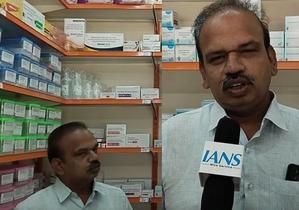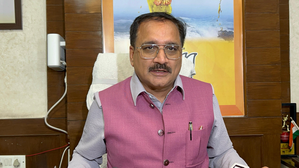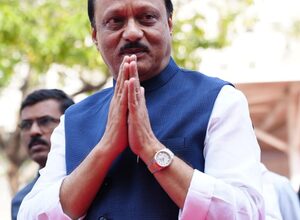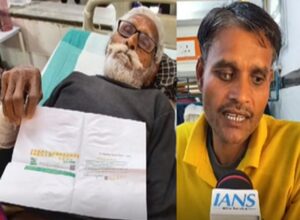The unassuming charm, depth and, discipline of Sushil Modi
New Delhi, May 14 (IANS) It was sometime in the first week of April 2004. Trying to shield myself from the sweltering heat, I was trying to cover my eyes with my right hand to see the response of the gathered crowd on what then Deputy Prime Minister L.K. Advani was speaking during his Bharat Uday Yatra. Someone lightly touched my shoulder and asked: “How are you?” I was a bit startled, though he was a well-known public figure, I had never met him in person. I smiled and said: “Thanks, sir. I am fine.”
The conversation didn’t proceed further. I thought it was not unusual for political leaders to casually ask such things even with persons they are not so familiar with. I soon found that Sushil Kumar Modi, then Leader of the Opposition in the Bihar Legislative Assembly, was different.
About an hour or two later, at one of the stopovers, I got an opportunity to get into Advani’s bus. Sushil Modi was standing at the doorstep, warmly smiling. I gave him my name and the media organisation I represented. He said: “I know you, I have seen you and read most of the pieces you write.” I was a bit puzzled: “You actually read them?” He perhaps sensed my thoughts, saying: “Internet makes everything possible. I read that on a laptop, I read many outstation newspapers every morning on the net.” Later an iPad was his constant companion, he would marshal data, facts, and reports with one touch.
That was my first meeting with him. We struck a lasting rapport. He instantly won my admiration through his simplicity, unassuming charm and grasp over issues. And most of all, he led a very disciplined life.
In 2005, the BJP-JD-U combine won elections handsomely against Lalu Prasad Yadav-Rabri Devi’s RJD and he became Deputy Chief Minister. On one of my visits to Patna, I called him, and he responded with an invite for tea. Though he was allotted a spacious official bungalow near the Raj Bhawan, he lived in his own house Rajendra Nagar, a property built by his father. He asked me: “What will you have, chai?” I said: “Whatever you will have”. To my surprise, he said he does not take tea.” Next he asked: “Anything to eat?” Again I said: “Whatever you will have”, and he replied: “I never eat anything from outside”, pointing to a small bag on the other side of the table. “I only take home cooked food.”
We had a long chat about family and politics.
Years later, out of the office of Deputy Chief Minister because Nitish Kumar had switched sides, deserting the BJP and aligning with RJD, a resilient Sushil Modi dug out Lalu Yadav’s “land for job scam”, listing out facts with exact number and location of properties acquired, which Lalu family and RJD family found difficult to defend. The CBI registered the case, which is still causing a great deal of trouble to Lalu and his family. He was also one of the prime movers in Lalu Yadav’s fodder scam.
Sushil Modi took it up with such vigour that Nitish Kumar was forced to flip once again, desert Lalu and re-align with the BJP. Modi became Deputy Chief Minister again.
He never left Bihar. His party colleagues chose to fight parliamentary elections when the BJP seemed to be on the upswing in 1998 and 1999, but he chose to remain in Bihar. Those who became Union Ministers in the Atal Bihari Vajpayee government respected him and considered their leader in Bihar. His understanding of Bihar politics and grip of the party’s organisational structure was total. But then with the passage of time, a generational shift had to happen in the organisation in Bihar and Sushil Modi had to pass on the baton, which he carried for decades, to others.
Along with his stint as the longest-serving Deputy Chief Minister of Bihar (2005-2013 and 2017-20), Sushil Modi, who also held the Finance portfolio, played an appreciable role in the implementation of the Goods and Service Tax as a leading member of the GST Council and his contribution won him many admirers across the political spectrum.
A few months ago, I got an early call from him, to talk about a piece I had written on Kashmir and its transformation post abrogation of Article 370. He said he was leaving for Patna in the afternoon and before he disconnected the call, insisted with usual warmth that we must meet on his next visit.
During my last trip a month ago, I tried to reach him with a bit of a heavy heart. By then the news was already out that he was suffering from cancer. I was told by someone close to him that he was suffering from a great deal of pain and had difficulty talking. He advised me to pray for him and hope for a speedy recovery, and meet him, God willing, next time. He kept on saying: “How could this happen to him, to a person who led such a disciplined life”.
That next time is never going to come.
–IANS
ss/vd




